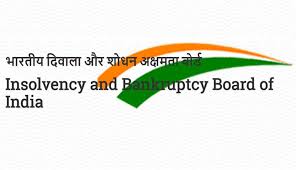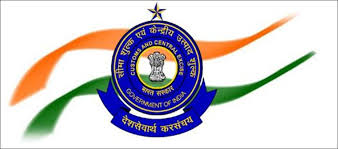 Lending and borrowing money is now India’s fastest-growing segment, and the successful industry and lenders are the latest darlings of equity investors. The share of banks and non-banking finance companies (NBFCs) in the market capitalisation (market cap, or m-cap) of all listed companies is now at an all-time high, as manufacturing companies and non-financial services such as information technology (IT) battle demand slowdown.
Lending and borrowing money is now India’s fastest-growing segment, and the successful industry and lenders are the latest darlings of equity investors. The share of banks and non-banking finance companies (NBFCs) in the market capitalisation (market cap, or m-cap) of all listed companies is now at an all-time high, as manufacturing companies and non-financial services such as information technology (IT) battle demand slowdown.
Banks and NBFCs, including insurance companies, now account for 22.3 per cent of the combined m-cap — the highest in at least two decades, and up from 17.2 per cent in March 2014 and 17.3 per cent five-and-a-half years ago in March 2012.
In contrast, the m-cap share of manufacturing companies is now down to a 10-year low of 54 per cent, against 55 per cent at the end of FY14 and around 57 per cent five years ago.
The biggest decline has, however, been recorded by companies in the non-financial services sector, whose largest component is IT exporters such as Tata Consultancy Services, Infosys, and Wipro. Non-financial services sector companies’ share in m-cap has declined to an all-time low of 23.7 per cent, against 28 per cent three years ago.
The combined m-cap of banks and NBFCs is up 145 per cent in the last three years to ~30.4 lakh crore now, growing at an annualised rate of 29 per cent since March 2014. Public sector banks have not participated in this boom as they lend largely to businesses which are now shrinking due to a virtual freeze on fresh investment by the corporate sector.
In the same period, manufacturers’ combined m-cap is up 85 per cent to ~73.6 lakh crore, growing at an annualised rate of 19.2 per cent during the period.
Non-financial services have been the laggards with the sector, with m-cap up 61 per cent during the period to ~32.4 lakh crore now, growing at an annualised rate of 14.6 per cent since March 2014.
The analysis is based on the year end m-cap and revenues of actively traded companies for every year since 1994-95. This means that the sample gets bigger every year as more companies get listed. For example in FY17, the sample had 3,552 companies, while the FY95 numbers were based on a sample of 1,551 companies. However, the absolute numbers are not important, as the analysis is based on a percentage of total m-cap.
It may not show in the overall numbers, but the boom in retail finance has had a knock-on effect on related segments in manufacturing and services. For example, most of the growth is now occurring in segments such as consumer durables, including passenger cars and two wheelers, and organised retail, where purchases are loan financed.
Experts attribute this to the growing financialisation of the Indian economy and near stagnation in industrial growth and service exports. “Private lenders and retail NBFCs continue to grow, even as the rest of the economy is on the verge of stagnation. This has made financial stocks the darlings of investors,” says G Chokkalingam, founder and MD, Equinomics Research & Advisory.
It shows in the revenue growth of listed companies vehicles or homes. across various sectors. The In the last three years, personal core revenues (or interest loans or household debt income) of banks and non-bank has grown at a CAGR of 18 per lenders grew at a compound cent, against 10.2 per cent annual growth rate compounded growth in disposable (CAGR) of 7.3 per cent in the income (at current last three years, making the prices) net of taxes during the sector one of the fastest-growing period, according to the Reserve Bank of India data.
In the same period, the all, the total household debt combined revenues of manufacturers, is up 65 per cent cumulatively including utilities in the last three years, against and construction firms, grew 35 per cent rise in disposable at a CAGR of 2.8 per cent, income during the period. while net sales of companies This has translated into a in non-financial services contracted boom in retail lending and a at an annualised rate sharp rise in valuation of of 4.8 per cent during the retail lenders such as private period. sector banks and NBFCs,
Lenders have also gained including Housing from a growing propensity of Development Finance Indians to borrow for purchasing Corporation, consumer Bajaj Finance, goods, Indiabulls Housing, Equitas Holdings, Bharat Financial Individuals, in turn, are taking Inclusion, and PNB Housing. on more risks and leveraging.
“Financials are now the their income to keep up only growth industry in the consumption despite a slowdown country. This has led to a in their income growth bubble-like valuation in the in line with the slowdown in retail lending space, especially gross domestic product NBFCs,” says growth,” says Dhananjay Sinha.
He expects the trend to robust growth in industry last for a while, given the and exports. “Consumers’ growing reliance on private income growth is dependent consumption in the economy on the performance of the despite poor growth in jobs farm, industrial and service and income. sector, especially software.
For how long can encouraging consumption people continue to borrow through fiscal spending in a and keep up their consumption bid to push up economic if income growth growth in the face of a slowdown remains depressed?” asks in corporate investment Chokkalingam.







